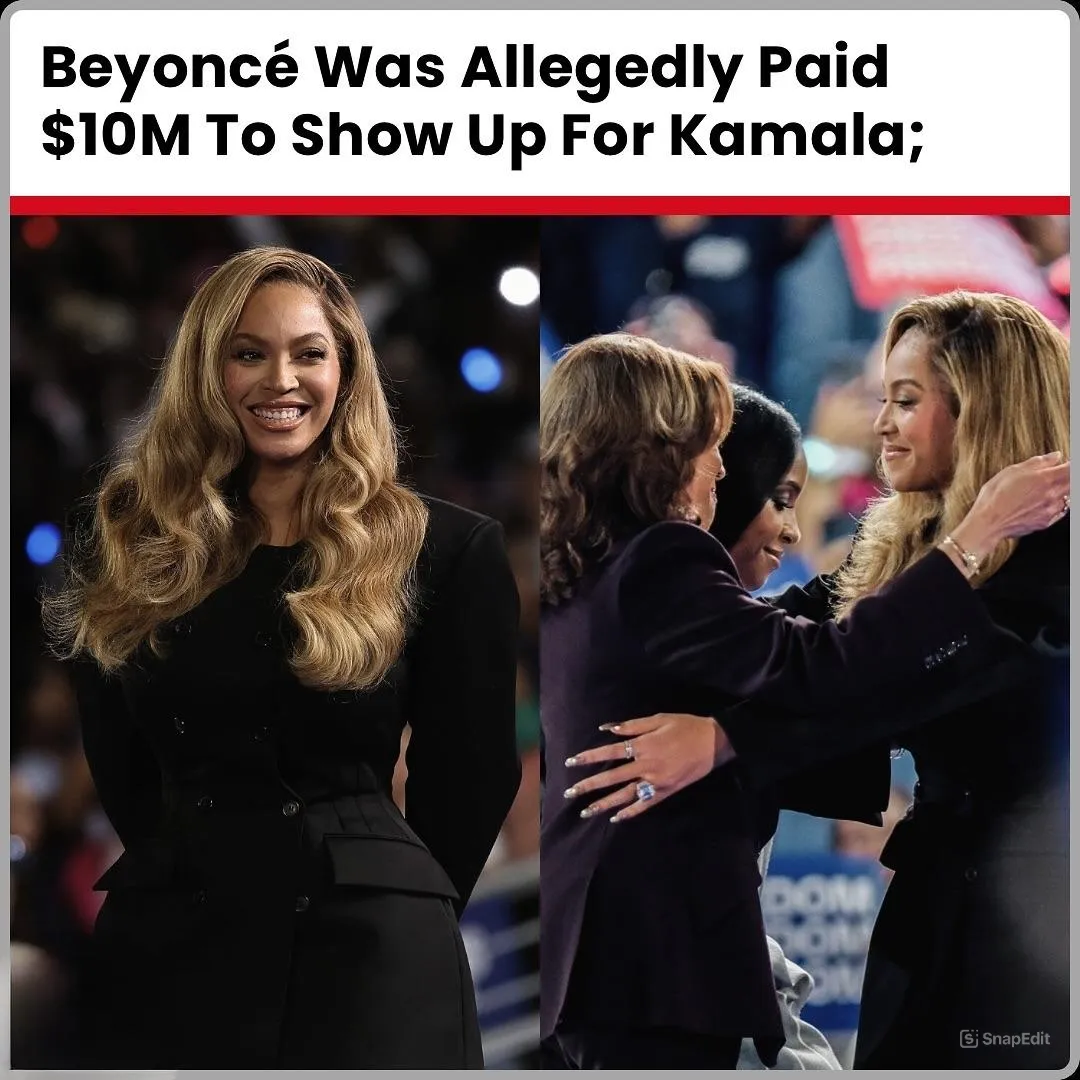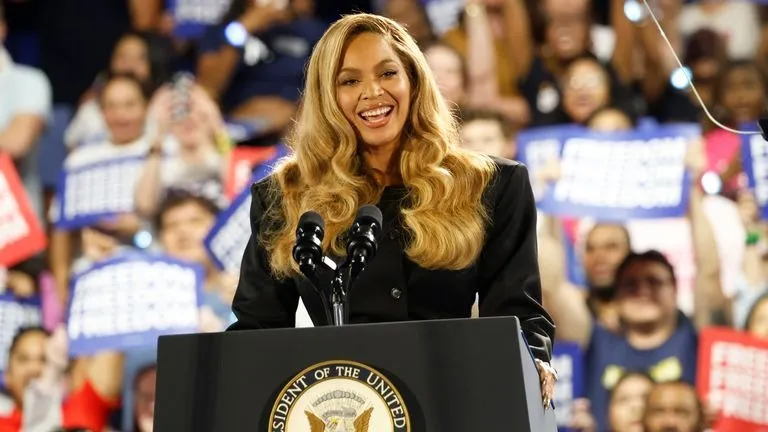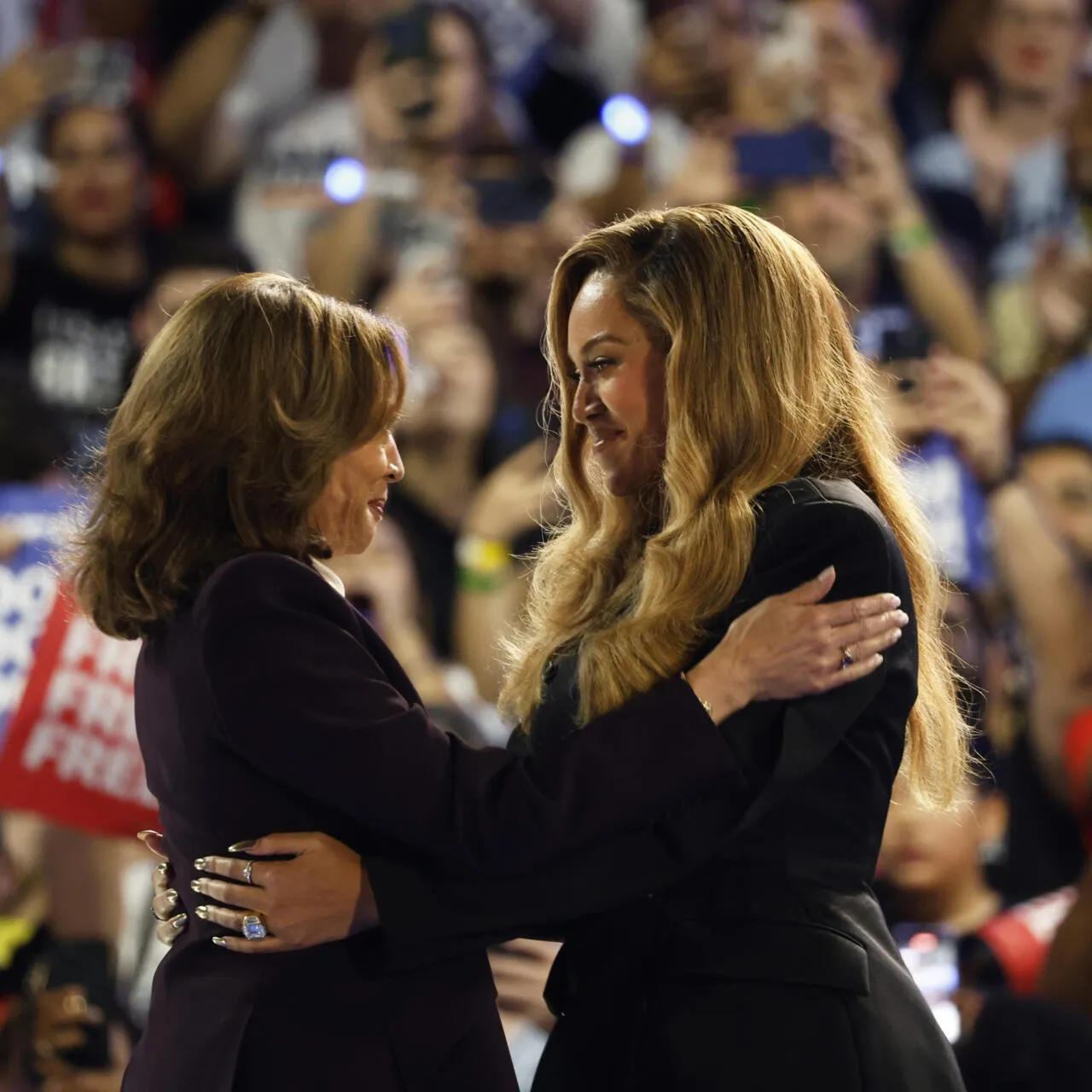Beyoncé has long been a powerful influence in the entertainment industry, not only as a musician but also as a cultural icon with a strong voice on social and political matters. Recently, news broke that the megastar allegedly received a whopping $10 million payment to endorse Kamala Harris. This revelation has left fans stunned and questioning what’s really happening behind the scenes. How did such a large sum come into play, and what does it signify about celebrity involvement in politics?
In today’s political landscape, celebrities hold a unique power to shape public opinion, especially with younger audiences. Beyoncé, known for her advocacy on various issues from racial equality to women’s rights, has used her platform to make powerful statements. Her decision to endorse Kamala Harris initially seemed to align with her values and support for change, yet reports of a substantial payment have sparked intrigue and criticism
For many fans, the question is whether her support for Harris is purely authentic or if financial incentives played a larger role. Though celebrity endorsements have long been part of political campaigns, they’re rarely backed by payments of this magnitude. This situation highlights a growing trend where political campaigns invest heavily in influencer endorsements, turning to high-profile personalities to rally support.
The rumored $10 million figure has set the rumor mill in motion. Analysts suggest that this amount was justified by Beyoncé’s unparalleled reach and influence. As one of the most-followed women on social media and a consistent chart-topper, her endorsement would naturally be seen as a significant asset to any political campaign.
Critics argue that such endorsements risk overshadowing the core political message, placing more focus on celebrity involvement than policy. Beyoncé’s massive payment could indicate that political strategists are increasingly relying on celebrity influence to connect with audiences that traditional political figures might struggle to engage.
Since the news broke, Beyoncé’s fans have been divided. Some believe that the payment does not alter the authenticity of her support, viewing it as a strategic collaboration between two influential women. Supporters emphasize Beyoncé’s history of activism and argue that she has consistently shown support for progressive causes. They believe that she would not risk her reputation for an endorsement that she did not genuinely believe in.
However, others feel disappointed, suggesting that the monetary aspect diminishes the sincerity of her political voice. Some argue that political endorsements should not be monetized, especially when they influence a public figure’s credibility and the trust that fans place in them. For these fans, the payment casts a shadow over Beyoncé’s involvement, raising concerns about how money might be swaying other high-profile endorsements.

As fans digest the shocking news, the implications remain unclear. Beyoncé’s representatives have not officially commented on the payment, leaving room for speculation. While Kamala Harris’s campaign has also not addressed the report directly, the conversation surrounding celebrity endorsements and their authenticity is likely to continue, especially as political campaigns increasingly intertwine with pop culture.
One thing is certain: Beyoncé’s influence remains undeniable. Whether or not fans are comfortable with her endorsement methods, her voice in political matters won’t be fading anytime soon. In a world where celebrity influence is as potent as ever, this news only reinforces the ongoing debate over authenticity, influence, and the intersection of money and politics.
The revelation of Beyoncé’s $10 million payment to endorse Kamala Harris underscores the complex nature of celebrity involvement in politics. As fans grapple with the implications, this story opens up broader questions about the role of financial incentives in swaying political support. In an era where the line between entertainment and politics continues to blur, Beyoncé’s story is a reminder of the ever-evolving relationship between fame, influence, and responsibility.
Leave a Reply